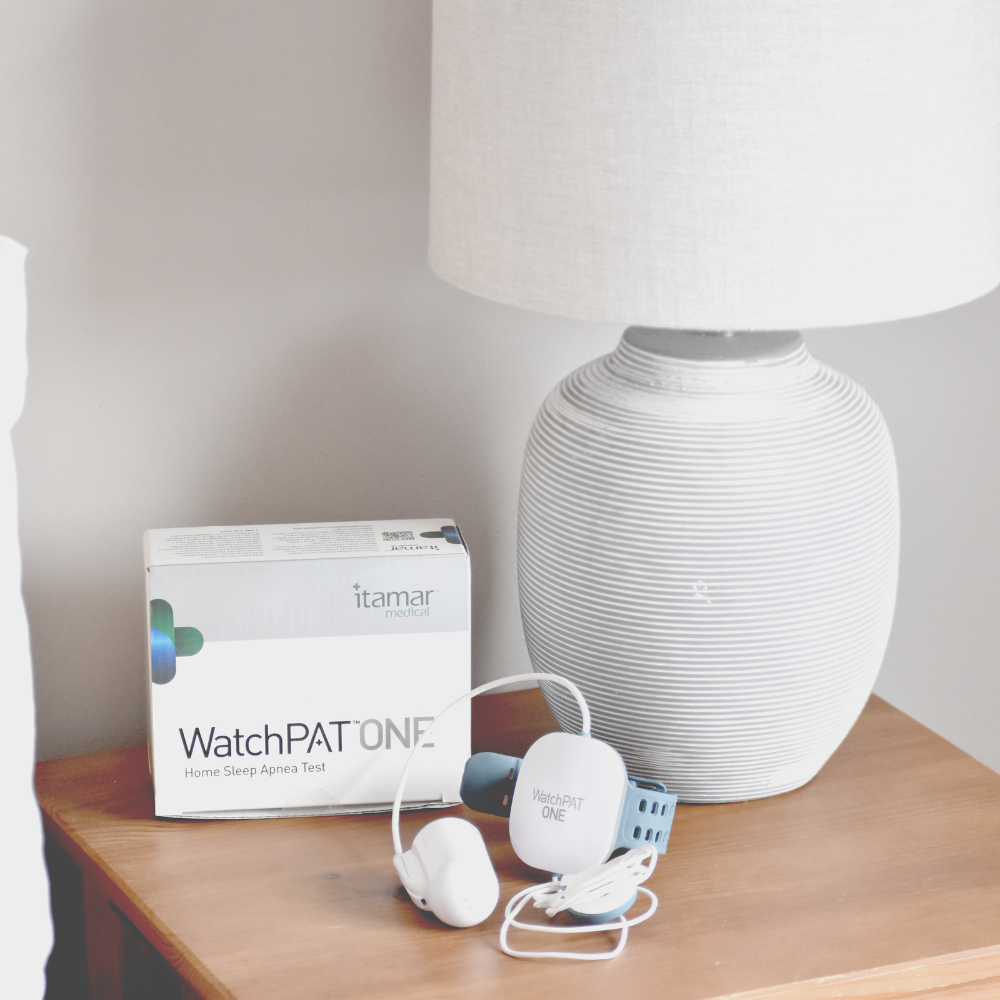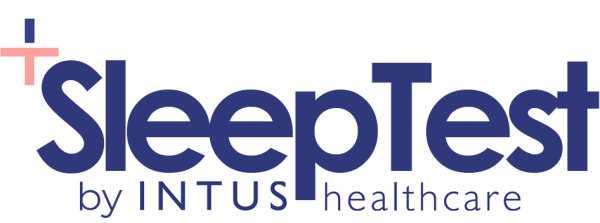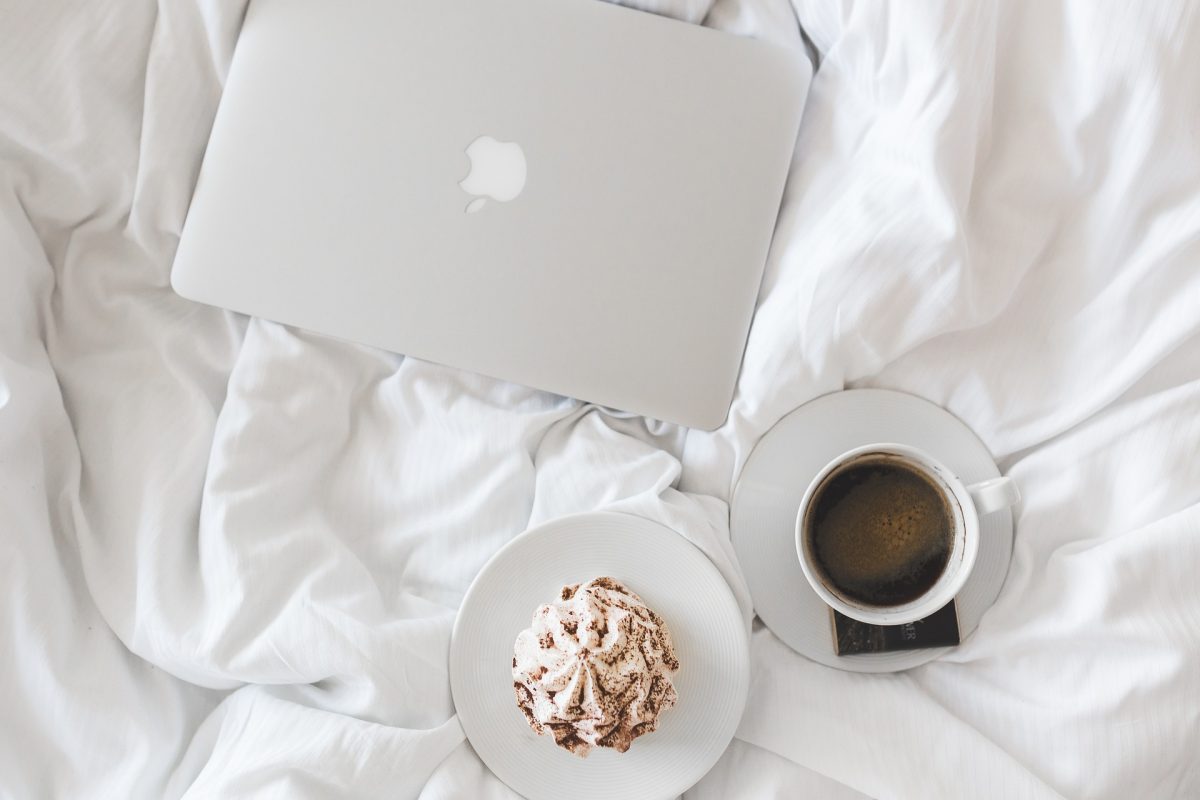Fact Checked
Intus Healthcare’s writers, customer service team, and sleep experts review and ensure this information is accurate.
Last updated on March 28th, 2025 at 11:19 am
Sleep hygiene is a term used to describe healthy sleeping habits and behaviours.
Quality sleep helps your mind and body function at its best throughout the day, improving your overall physical and mental health.
Engaging in good sleep hygiene benefits everyone, including those with sleep disorders such as Insomnia, Hypersomnia and Obstructive Sleep Apnoea (OSA).
Table of Contents
How many hours of sleep a night is healthy?
Sleeping between seven to eight hours has been found to be the best way to improve life span and optimise day-to-day well-being. Research has found that individuals who slept less than seven hours a night or more than eight hours a night had an increased risk of death (24% and 17%, respectively) (1).
It is not uncommon to experience changes in your sleeping pattern at some point. So if you suddenly find yourself lying awake for hours, trying to fall asleep, consider improving your sleep hygiene.
Why is sleep hygiene important, and what are the benefits?
Sleep hygiene benefits every aspect of the human body and can increase productivity and performance.
Eight benefits of good sleep hygiene:
- Weight management: Research has found that sleeping between seven to eight hours helps to manage weight. Disruptions during sleep can affect circadian rhythms, leading to weight gain. Sleeping an insufficient amount increases the neurotransmitter ghrelin, which is the hormone that increases the appetite. It also suppresses leptin, which signals food satisfaction (2). Lack of sleep can also heighten emotions, inducing stress and emotional eating.
- Emotional and mental health: Insufficient sleep is often associated with anxiety and depression. When the body sleeps, it goes through a four-stage sleep cycle. REM (Rapid Eye Movement) sleep is the final and deepest stage of the sleep cycle. In this stage of sleep, we dream and process the events that happen throughout the day. Poor sleep prevents necessary REM sleep, increasing the likelihood of developing mental health complications.
- Memory improvement: During the REM stage of the sleep cycle, memories are stored and strengthened. This helps with problem-solving and reduces the emotional intensity of events. If you do not sleep enough, your ability to learn new things could decrease by 40% (3). Lack of sleep prevents memory consolidation and the brain’s reaction to processing new information throughout the day (4). Sleep deprivation may increase the risk of beta-amyloid build-up. Beta-amyloid plays an essential role in neural growth and repair; abnormal amounts of this protein have been found in those with Alzheimer’s disease (5).
- Improved immune system: The immune system helps fight bacteria and infections, strengthening overall health and maximising energy levels. During sleep, there is an increased production of cytokines associated with inflammation. This inflammatory response helps with recovery and to fight off infection. Good quality sleep also strengthens immune memory and reinforces the immune system’s ability to remember how to recognize and react to dangerous antigens (6). A lack of sleep has been linked to both short-term illnesses and the risk of chronic diseases like diabetes (7) and heart problems (8).
- Improved heart health: Sleep is where the body restores; as the body goes through the sleep cycle, stress on the heart is reduced. Sleep deprivation is linked to numerous heart complications, such as high blood pressure, atrial fibrillation and stroke.
- Increased energy: Regular quality sleep allows the individual to wake up feeling refreshed and, therefore, increases overall energy levels.
- Higher sex drive: Lack of sleep decreases the production of hormones; for example, males who suffer from untreated Sleep Apnoea create less testosterone (9). This is because when your sleep cycle is interrupted, your body will not release as many reproductive hormones, affecting sperm count, fertility and sex drive.
- Maximised brain function: Sleep increases brain function, boosting productivity and cognition. Research has found that lack of sleep can negatively impact your sleep and brain function to the same degree as alcohol intoxication (10).
What are the signs of poor sleep hygiene?
The signs of poor sleep hygiene may surprise you, but becoming aware can help you optimise your sleeping habits.
Signs of poor hygiene include:
- Difficulty falling asleep
- Regularly waking up during the night
- Waking up tired
- Moodiness and irritation
- Stress, depression and anxiety
- Difficulty losing weight
- Forgetfulness
- Low sex drive
- Puffy eyes and spots
- Poor concentration
- Increased appetite

Home Sleep Apnoea Test
The test monitors your heart rate, snoring intensity, blood oxygen levels, body positioning, and more, providing accuracy comparable to testing used in sleep clinics for in-depth sleep analysis.
The simple-to-use test takes just one night to complete, and results are returned within two working days after completion.
Our experienced NHS-qualified sleep professionals independently analyse all studies, providing follow-up advice and support.
How to improve your sleep hygiene
The most important way to regain good sleep hygiene is by prioritising your sleep; here are a few things you can do to help improve your sleep hygiene:
Sleep schedule: Creating a sleep schedule helps the body to restore and regenerate at night. Try to go to sleep and wake up at the same time each morning – including on the weekends!
An irregular sleeping pattern can make it difficult to fall asleep and increase stress levels.
Bedroom comfort & routine: The room you sleep in should only be used for sleep and intimacy; completing other activities here will make your mind associate it away from sleeping. It is also advised to remove distractions from your bedroom, make it comfortable and only go to bed when you are tired.
Use comfortable bedding: Choose a mattress, sheets, blankets and pillows that are comfortable to match your needs and preferences to make falling asleep easier.
Drown out noise: Bedroom noise can make falling asleep harder; you could use earplugs to keep you from staying awake.
Try scents that encourage sleep: Trying a light and calming scent can help you fall asleep; some examples include lavender and Jasmine.
Room temperature: The temperature of your bedroom can play a part in the quality of your sleep; sleeping in a cool room makes it easier.
Avoid stimulants: Avoid stimulants four hours before you sleep, as these can keep you awake. Stimulants include caffeine, nicotine and alcohol.
Regularly exercise: Regular exercise helps the body to wind down and reduce the number of times you wake up at night (11). However, exercising too closely before you sleep will overstimulate the body, making it difficult to fall asleep. Avoid exercising 90 minutes to 3 hours before you sleep.
Daylight exposure: Exposing yourself to natural light lets your brain know it is time to start the day. Spending between 15 to 20 minutes in daylight can help your body wake up and reset your circadian rhythm (your 24-hour body clock).
Turn off smart devices: Blue light from electronic screens suppresses the body’s release of melatonin, a hormone which helps control sleep cycles. Circadian rhythm uses light signals to let the body regulate sleep and wake times. Therefore, you should avoid using these devices at least 90 minutes before sleep.
Reduce napping: Napping for more than 20 minutes makes it harder to fall asleep and disrupts your body clock. Limit napping and try not to nap too late in the day, as this can leave you feeling disorientated when you wake up.
A balanced diet: Eating a balanced diet will help you fall asleep. Foods high in Tryptophan are naturally sleep-inducing, for example, milk, cheese and oats. Avoid eating a heavy meal before you sleep, which can interrupt your sleep and leave you feeling bloated.
Related page: Foods which can affect your sleep
Manage stress before you sleep: Before you go to bed, you should put the stresses of the day behind you. Attempting to go to sleep with worries on your mind can make it hard to fall asleep as your brain struggles to shut down. Try to relax your mind; taking a warm bath before you sleep can help.
Don’t toss and turn: If you find yourself continuously changing your sleeping position and unable to fall asleep, get up and try to do something calming. Try reading, stretching or some light exercise.
Sleep hygiene and Obstructive Sleep Apnoea
Poor sleep hygiene can worsen the symptoms of Obstructive Sleep Apnoea (OSA).
Good sleep hygiene is the first step in managing a sleep disorder.
Takeaway
Creating a good sleep hygiene routine costs nothing and can make all the difference to your quality of life and the impact a sleep disorder has.
If you think you have symptoms of Sleep Apnoea, take our OSA questionnaire or order an in-home sleep test. If you need some more help deciding if you require a sleep test, take a look at our should I take a sleep test advice page.
REFERENCES
- Hublin, C. et al. (2007) “Sleep and mortality: A population-based 22-year follow-up study,” Sleep, 30(10), pp. 1245–1253. Available at: https://doi.org/10.1093/sleep/30.10.1245.
- Dr Liji Thomas, MD, Ghrelin and Sleep. Available at: https://www.news-medical.net/health/Ghrelin-and-Sleep.aspx.(Accessed: November 7, 2022).
- NOH News In Health (2013), How Snoozing Strengthens Memories. Available at: https://newsinhealth.nih.gov/2013/04/sleep-it. (Accessed: November 7, 2022).
- Michael Breus (2016), Sleep and Memory. Available at: https://psychcentral.com/lib/sleep-and-memory#1.(Accessed: November 7, 2022).
- Shokri-Kojori, E. et al. (2018) “Β-amyloid accumulation in the human brain after one night of sleep deprivation,” Proceedings of the National Academy of Sciences, 115(17), pp. 4483–4488. Available at: https://doi.org/10.1073/pnas.1721694115. (Accessed: November 9, 2022).
- Irwin, M.R. (2019) “Sleep and inflammation: Partners in sickness and in health,” Nature Reviews Immunology, 19(11), pp. 702–715. Available at: https://doi.org/10.1038/s41577-019-0190-z. (Accessed: November 9, 2022).
- Spiegel, K. et al. (2009) “Effects of poor and short sleep on glucose metabolism and obesity risk,” Nature Reviews Endocrinology, 5(5), pp. 253–261. Available at: https://doi.org/10.1038/nrendo.2009.23. (Accessed: November 9, 2022).
- Grandner, M.A. et al. (2016) “Sleep: important considerations for the prevention of cardiovascular disease,” Current Opinion in Cardiology, 31(5), pp. 551–565. Available at: https://doi.org/10.1097/hco.0000000000000324.
- Gigi Engle, How Poor Sleep Affects Your Sex Drive. Available at: https://www.mensjournal.com/health-fitness/how-poor-sleep-affects-your-sex-drive-w468766/ (Accessed: November 9, 2022).
- A M Williamson (2000), Moderate sleep deprivation produces impairments in cognitive and motor performance equivalent to legally prescribed levels of alcohol intoxication. Available at: https://pubmed.ncbi.nlm.nih.gov/10984335/. (Accessed: November 8. 2022).
- Jessica R Alley (2015), Effects of resistance exercise timing on sleep architecture and nocturnal blood pressure. Available at: https://pubmed.ncbi.nlm.nih.gov/25426516/. (Accessed: November 7, 2022).
About Our Editorial Team
Danni is a degree-educated content writer passionate about helping those with Sleep Apnoea sleep better; she works closely with our clinical and customer care teams to ensure that each article is thoroughly researched and accurate.
Her writing aims to inform, support, and advise readers about Sleep Apnoea, helping to raise awareness and promote effective treatment options.
She has written many health-focused articles, reaching hundreds of readers annually, to help people sleep better and live healthier lives.
Lateisha King is an experienced Sleep Clinician with advanced training in polysomnography and respiratory health.
With over six years of experience, including at the prestigious Guy’s and St Thomas’ NHS Foundation Trust Hospital, she has conducted and reviewed more than 500 diagnostic sleep studies.
Her expertise in sleep science ensures that all articles align with the latest data and treatment protocols, providing readers with trustworthy and practical advice to improve their sleep health and overall well-being.





